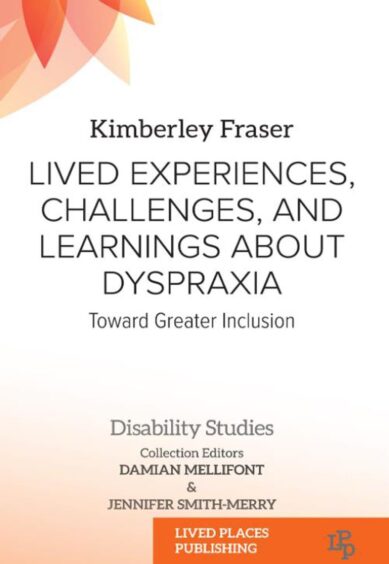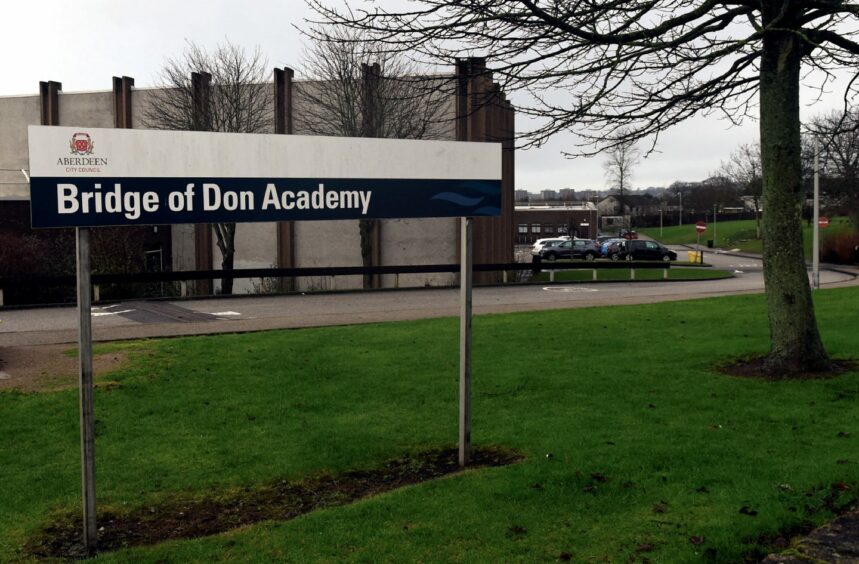As a youngster, Kimberley Fraser was no stranger to being told she would not achieve much with her life.
Kimberly, now 37, was still at school when she was diagnosed with motor learning difficulties, which is today known as dyspraxia, a condition that usually manifests in childhood and makes it difficult to perform most motor skills.
It is thought to affect up to 10% of the population and up to 2% severely but, as an “invisible” disability, it is often misunderstood.
“There are a lot of companies that see the word disabled and I think they get scared, which is ridiculous,” Miss Fraser told The Press and Journal.
“Just because I don’t work in the same way to everybody else doesn’t mean I’m not valuable.”
In a bid to challenge perceptions of the condition and raise awareness, Miss Fraser has proudly released her first book, which is all about growing up and living with dyspraxia.
She says it “still hasn’t sunk in” but that it is a “brilliant feeling”.
“It’s one thing knowing that you struggle, but I think it’s knowing you’re not alone, that actually, I’m not stupid, deficient or unintelligent, there is actually a medical reason why I struggle and it’s not just me,” she said.
“To everyone who said I was stupid, everyone who said, ‘you can’t stay on at school’, ‘you can’t do Highers’, ‘you can’t do this’ – well, I’ve written a book.”
Kimberley’s struggles in education, employment and wellbeing
Her book asks the question “how can we better support and promote inclusivity for those living with dyspraxia?”
To do that, she documents her journey from childhood living in Mastrick and Potterton, her diagnosis, and growing into adulthood.
She bravely explores the challenges she has faced living with the condition, including struggles in education, employment and wellbeing.
The former Bridge of Don Academy pupil argues it is not the disability itself that causes problems to the sufferer, but a lack of public awareness, which she said leads to frequent misunderstandings and inadequate support.
Miss Fraser explained how she has been an avid reader since she was a child and, at 16, read “Caged in Chaos” by Victoria Biggs, a “Dyspraxic Guide to Breaking Free”.
She recalls telling her mum that “this is me”, and always longed to write her own book.
She was given the push she needed when contacted by Damian Mellifont, a neuro-divergent researcher at Syndey University who leads and contributes to studies that advance inclusion of people with disabilities.
Miss Fraser admits she followed him on social media because his job title “sounded interesting”.
“Then I got a message out the blue saying, ‘I want you to write for me’,” she recalls.
“I did not believe that he wanted me to write for him. This is the kind of thing you hear stories about – this doesn’t happen to me.”
After much discussion, she started writing her book in January with the aim to finish by April this year, with Mr Mellifont being one of its editors.
‘Rampant ableism’
So, what does Miss Fraser hope her book will achieve?
“There’s still rampant ableism and there’s still the stigma of being disabled. The one I get all the time, my personal favourite is, ‘your disability can’t be that bad or you would see it’,” she said.
“I hope my book will put these attitudes to bed, once and for all.”
Kimberley’s book “Lived Experiences, Challenges, and Learnings about Dyspraxia: Toward Greater Inclusion” is out now.
Dyspraxia Awareness Week runs from October 1 – 7



Conversation